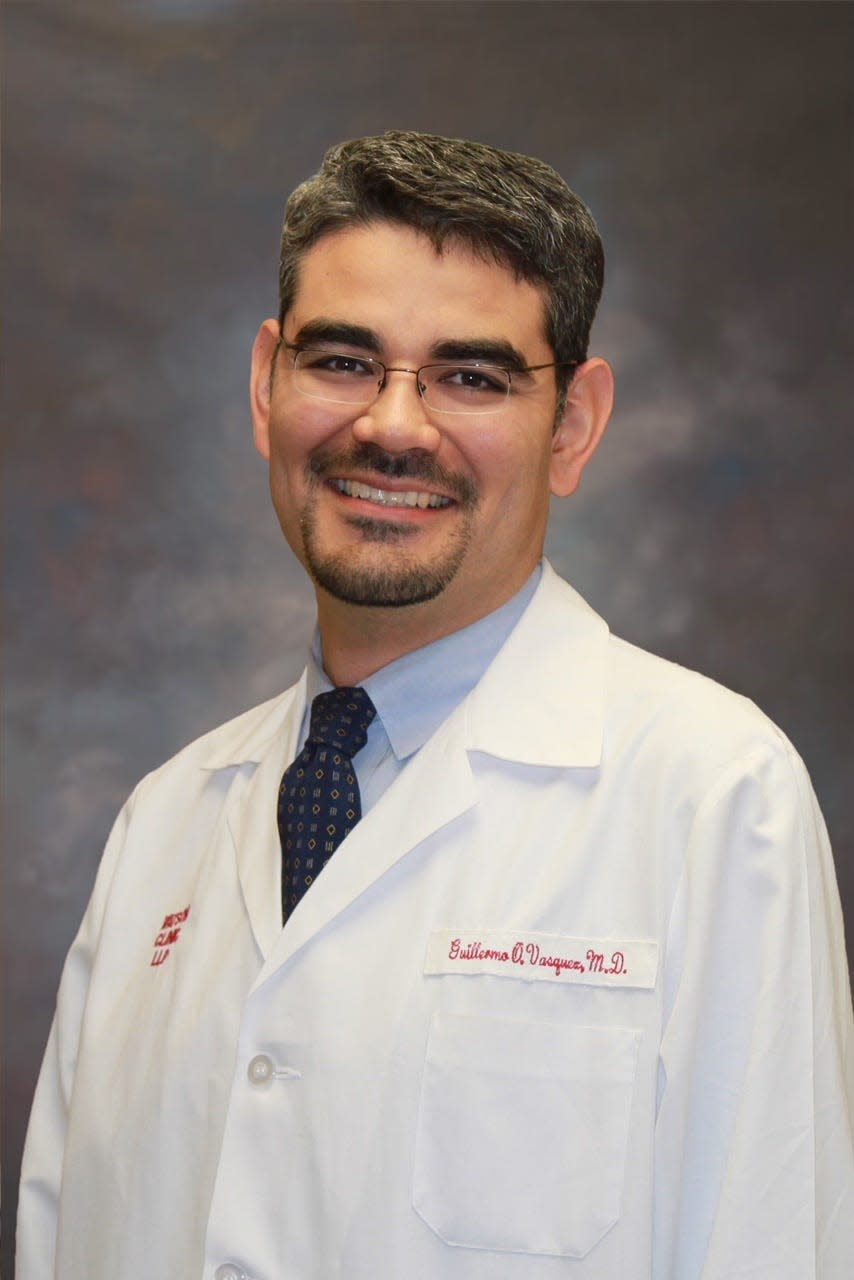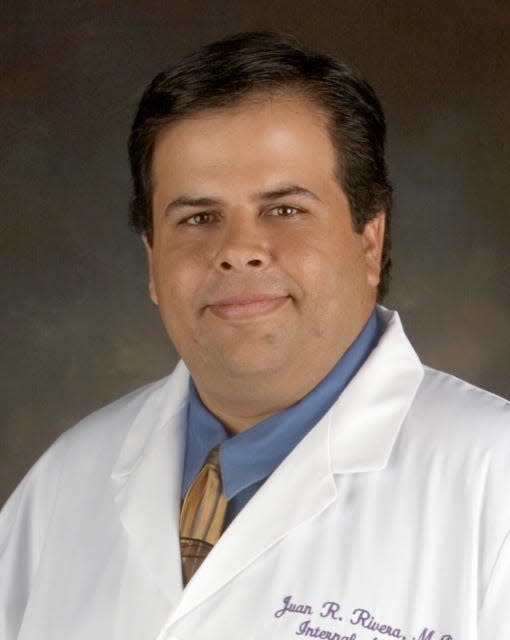Statins can lower your risk of heart disease, but are no substitute for healthy living
Four in 10 adults in the United States are obese, increasing their risk of having high cholesterol.
Almost as many adults have cholesterol levels that are unhealthily high, a key risk factor for heart disease.
Put those together and it’s easy to see why more and more people are being prescribed statin drugs.
Many clinical trials have found statins can reduce risk of cardiovascular events like heart attacks, as well as lower low-density lipoprotein cholesterol, better known as LDL or the bad cholesterol.
“It’s not a matter of making the numbers look prettier,” said Dr. Guillermo Vasquez, an internal medicine specialist at Watson Clinic in Lakeland.
“It’s to reduce risk of cardiovascular events and stroke.”

The American Heart Association recommends people between the ages of 40 and 75 who haven’t had a heart attack learn their 10-year risk of having cardiovascular problems.
To determine that risk, health-care providers often use the American College of Cardiology’s atherosclerotic cardiovascular disease risk calculator. A multitude of factors – blood pressure, smoking, cholesterol, age, sex, diabetic status and race among them – go into the calculation.
“It’s not perfect, but it’s fairly accurate in telling you whether a patient needs a statin,” said Dr. Juan Rivera, medical director at Bond Clinic in Winter Haven.
The American College of Cardiology and the American Heart Association worked together in developing the heart risk calculator.
The AHA website, www.heart.org, has a version of the calculator.
“The numbers show ‘this is what we’re trying to decrease and this is your risk,'" Vasquez said.
A safe place Memory Cafe in Lakeland offers activities for people with dementia and their families
Got lower back pain? The treatment options are almost as varied as the causes
Just normal aging? Maybe not. Forgetfulness could be a sign of mild cognitive impairment
'It comes down to healthy living'
“The statin is only one tool in a spectrum of therapies,” cautioned Rivera, whose specialty is internal medicine.
“It comes down to healthy living. … Using medicine as a substitute for healthy living is never a good idea.”
Depending on individual patient circumstances, Vasquez said he might recommend lifestyle changes, healthier diet, high fiber intake and increased aerobic exercise before recommending a statin.
Health-care providers don’t just look at someone’s total cholesterol.

They look at its components, such as how high-density lipoprotein, the good cholesterol, compares to LDL, the bad cholesterol.
With the risk calculator, patients may come back in a gray or intermediate range of risk. Other cases are more clear-cut.
ACC guidelines say a patient with atherosclerotic disease or stroke should be on statin medication irrespective of their LDL. A diabetic has a risk equivalent to an atherosclerotic patient, Vasquez said.
Atherosclerosis is when plaque, fatty materials, builds up in the arteries.
“There is no guarantee, and we can never prove we prevented an event,” Vasquez said. “The reasons behind the studies (and) guidelines are to extrapolate this to an individual.”
Statins aren't appealing to some
Slightly more than half, 54.5%, of people whom heart doctors say qualify for cholesterol medications are taking them, a survey found.
Of those who aren’t, some can’t tolerate the statins.
Others, afraid of side effects, opt instead to use supplements like garlic, fish oil or red yeast rice.
Sometimes, though, appropriate patients say their doctors never offered them a statin.
What about non-prescription supplements? That’s a thorny topic.
Anthony Miller, owner of Anthony’s Health Hut in Lakeland, contends statins are prescribed too readily. She takes a supplement that contains a mixture of red yeast rice and other herbs.
“I went from 265 down to 180 and it did not cause side effects,” she said, adding that some of her clients report memory loss or muscle problems on statins.
The doctors interviewed consider statin drugs safe and effective for most patients who need them. They said they monitor patients on statins, including doing blood tests, and encourage them to report any apparent reactions.
Severe muscle aches, other pain that seemingly comes out of nowhere, yellowness of the eyes and new memory problems are problems that need to be checked, Rivera said.
Prescribing a different statin or adjusting dosage may resolve some side effects.
They expressed concerns about lack of convincing trials for some supplements and less regulation of them than prescription medicines receive.
“I would be very careful with red yeast rice, as its pathway is very similar to statins,” Vasquez said. “It may work, but the degree of variation does not justify the risk.”
Patients taking herbals should be monitored for complications, he said.
They also should tell their doctors what non-prescription drugs they take to avoid potentially harmful interactions.
Other possible medical treatments
There are other effective medical treatments for patients who can’t tolerate statins or whose LDL levels stay high despite statins, Rivera said.
Those include ezetimibe (Zetia) and PCSK9 inhibitors like alirocumab (Praluent) and evolocumab (Repatha), which studies indicate lower heart attack risk.
“The main barrier is cost,” Rivera said. “They’re very expensive.”
Bempedoic acid (Nexletol) has been used along with statins as cholesterol-reducing treatment. Research published in the March 4 New England Journal of Medicine found it effective by itself in lowering risk of major adverse cardiovascular events in people who can’t tolerate statins.
Cost also is a factor with bempedoic acid, limiting its use.
Robin Williams Adams can be reached at robinwadams99@yahoo.com.
This article originally appeared on The Ledger: Statins are one tool in a spectrum of therapies to lower cholesterol

